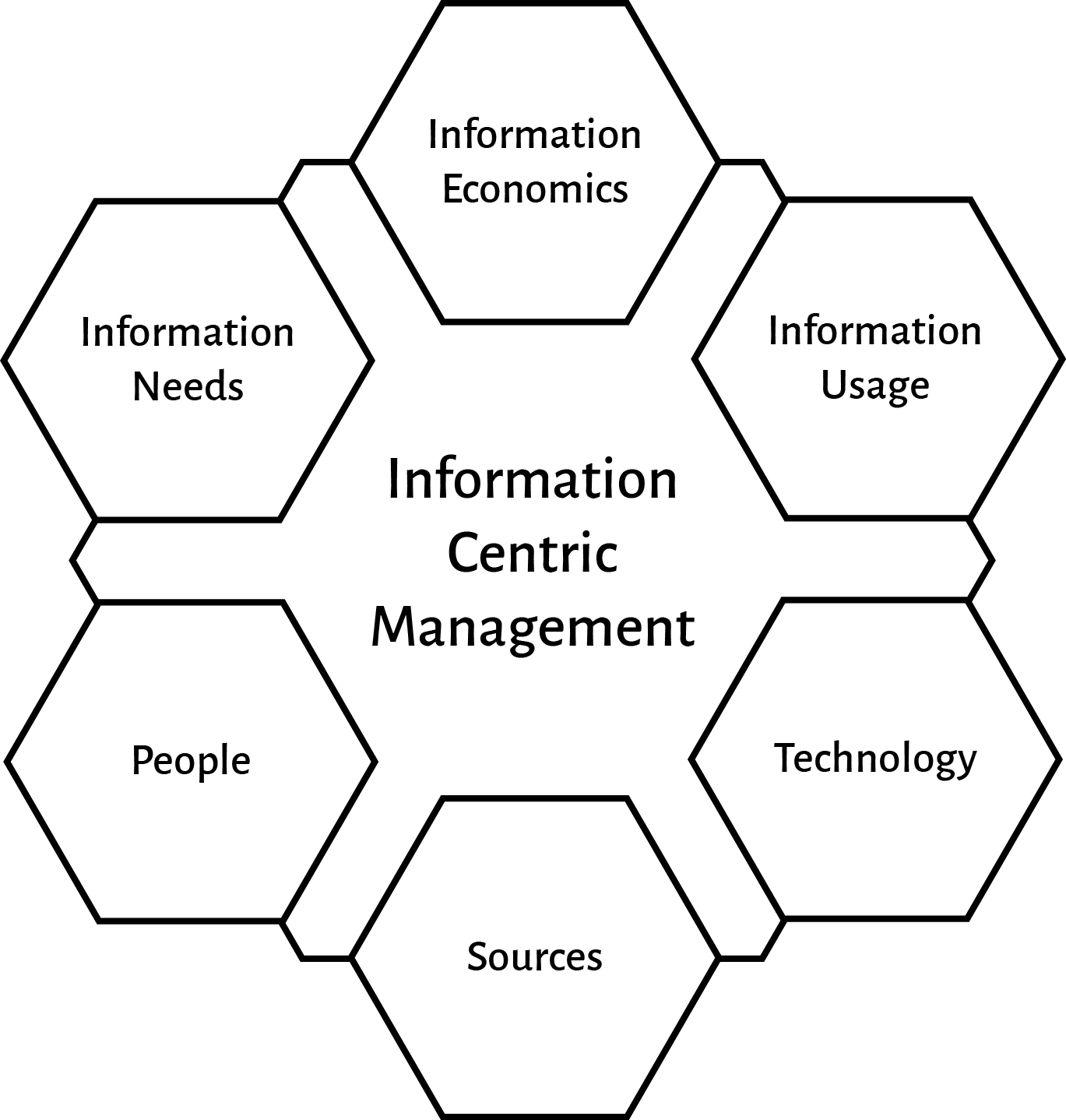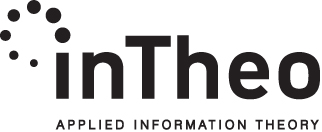Information Centric Management

Information Centric Management (ICM) is a management framework consisting of six facets, each of which containing necessary models and methodologies for financial as well as operational efficiency in corporate information resource utilization.
It is a framework used to uncover, manage, and leverage, the economic values of information hidden in the depths of most organizations’ operations and balance sheets. It is also a working model that is comparably easy for any management team to adopt as a component of the everyday strategy and operations development activities.
The fundamental ICM insight is that all six facets are necessary components of a profitable information recourses strategy. If even only one is left out, the operational as well as financial return will be significantly diminished. The framework can be illustrated by a small subset of management matters that ought to be addressed within each of the six facets:
Economics – the economics of information and the values to manage
Examples of questions to address:
- Fundamentally, how do we value information?
- Which decision areas would benefit most from improved information provisioning in terms of economic as well as operations efficiency?
- Do we consider information as a valuable asset even in the daily, tactic, work of all employees?
Needs – identifying the information that would bring value
Examples of questions to address:
- Do we consider information and the need for information as a strategic resource matter? If not, how do we see it?
- What (!) information is needed at the different “points of decisions” to enable the sought for value and effects?
Usage – usage patterns that bring operational efficiency
Examples of questions to address:
- Which are the different information usage patterns in our company?
- Usage patterns differ between different groups of staff and mandates, but how in our company?
NB, information needs and information usage are two distinctively different matters to address!
Sources – ensuring access to relevant information
Examples of questions to address:
- Given the needs and perceived usage patterns, do we have access to the necessary information?
- Do we have sufficient budget for external information procurement?
- Do we have sufficient budget for internal information capturing, curating and maintenance?
Technology – information access solutions, machine learning, AI etc.
Examples of questions to address:
- Do our platforms and applications really support our needs, usage patterns and information acquisition required?
- Are they sufficiently interconnected for efficient usage?
- Do we have sufficient budget for IT-tools, development and maintenance to sustain our needs?
People – embedding an information centric value approach in the organization
Examples of questions to address:
- Is our staff truly information adept?
- Do our employees have the means to access necessary information?
- Even so, do they know what they need and where (if) they can access it?
- Do we have sufficient budgets for training staff in information usage for improved efficiency?
Information Centric Management should be implemented gradually for long term-usage. It is not, as not uncommon with other methodology implementations, a “big-bang” mega project that will halt everything else on the management agenda until fully implemented. Further, it is usually not even a replacement of current working models. It is an addition that is aimed at developing and deploying in-house capabilities at a pace that does not interrupt other ongoing change programs or business operations.
The challenge with information management in general is that all these factors need to be addressed in parallel. Many, though, fear that it would be overwhelming and thus focus on one or two factors at each time, which then, unfortunately, render them limited results, or no results at all as these are all tightly interlinked. The most common error of all is most likely all the ambitious projects implementating new technology (IT tools and environments) without keeping track of the other five facets development at the same time. Capable IT and software are indispensable tools for Information Centric Management, no doubt, but those should be consequences of the other facets, not a cause of its own.
Find out more about the widely varying aspects of Information Centric Management and its underlying theories under Insights.
